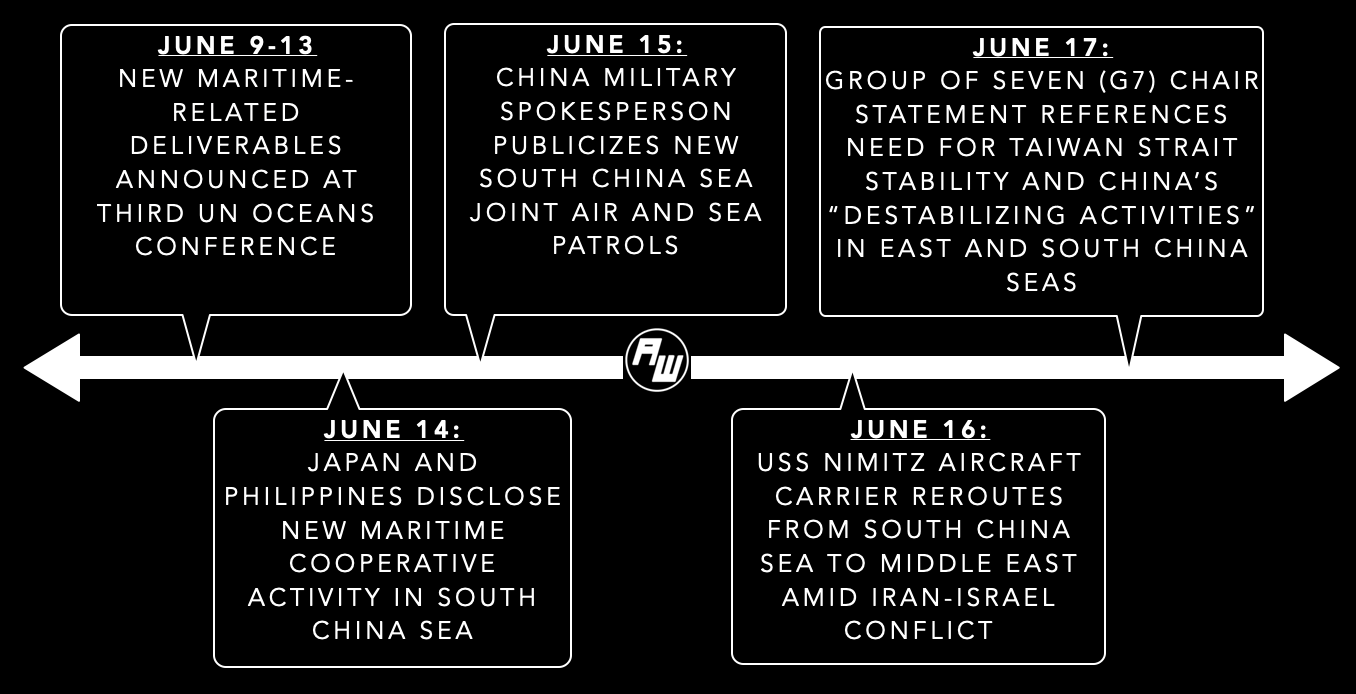Review: Crisis Fears and Indo-Pacific Blue Security Futures
New volume examines uncertain futures in the contested Indo-Pacific maritime domain, including in the South China Sea, the Indian Ocean and the Pacific.
A new volume examines uncertain futures in the contested Indo-Pacific maritime domain, including in the South China Sea, the Indian Ocean and the Pacific.
WonkCount: 1,458 words (~7 minutes)
Review: Crisis Fears and Indo-Pacific Blue Security Futures
Context
“The deep sea cannot become the Wild West,” United Nations Secretary General Antonio Guterres warned earlier this month at the third iteration of the UN Oceans Conference which featured participation from key Southeast Asian states1. While the ocean economy has more than doubled in 30 years by one count, the oceans are under threat due to a confluence of challenges including collapsing fish stocks, rising emissions and choking plastics2. In the Indo-Pacific — home to half of the world’s population, almost two-thirds of its economic output and seven of its largest militaries — manifestations of what Guterres called “a system in crisis” are visible across diverse and contested maritime spaces analyzed here on ASEAN Wonk, including the South China Sea and the Indian Ocean.
Select Recent Maritime Security-Related Geopolitical Developments in the Indo-Pacific
A new volume Blue Security in the Indo-Pacific sheds light on the incredibly diverse, complex nature of regional maritime futures3. In doing so, the book, edited by scholars Ian Hall, Troy Lee-Brown and Rebecca Strating, adds to recent works that analyze general Indo-Pacific defense outlooks as well as specific domains and flashpoints. These include ones reviewed here on ASEAN Wonk addressing civil-military relations, security policy, the Indian Ocean, the South China Sea and Taiwan. The book presents perspectives that support a more holistic approach to maritime security challenges across a diverse region than the narrower prism of great power competition. This diversity manifests itself across the board — including China and Russia’s discomfort with the term Indo-Pacific; the 25 or so agenda items originally listed in the maritime pillar of the ASEAN Indo-Pacific Outlook; or the over 20 agencies in Australia with maritime stakes4. “As such, there is no ‘one-size-fits-all approach to Indo-Pacific maritime security,” the editors contend before the book transitions to an assessment of 18 diverse Indo-Pacific country outlooks5.
Analysis
Blue Security in the Indo-Pacific also forecasts the evolution of maritime outlooks in the coming years and implications for regions including Southeast Asia and the wider Indo-Pacific (see originally generated ASEAN Wonk table below for a summary of key aspects and priority pillars, along with major coming datapoints to watch. Paying subscribers can also read the rest of the “Analysis” section and “Implications” section looking at how these dynamics play out in the future).





